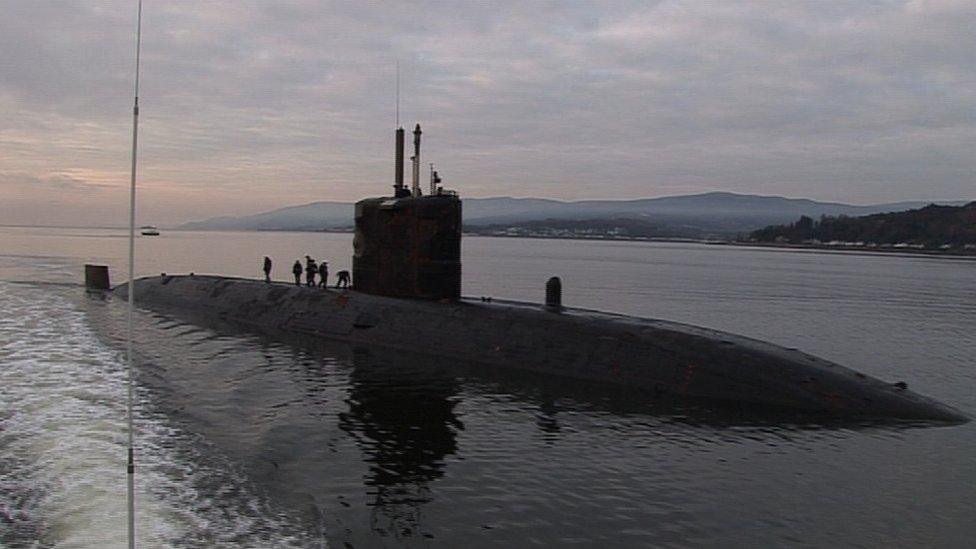Steve Aiken: The ex-submariner set to lead the Ulster Unionists
- Published
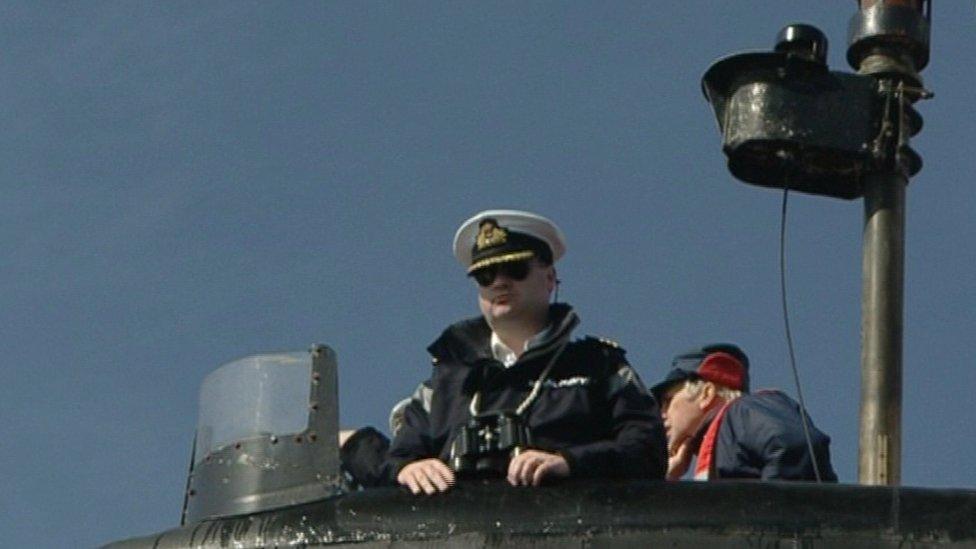
Mr Aiken spent a number of years commanding submarines for the Royal Navy
The leader-elect of the Ulster Unionist Party (UUP) also goes by the apt nickname Submarine Steve.
Steve Aiken has only been in frontline NI politics since 2016, having spent years before that in the Royal Navy.
The ex-submarine commander from County Antrim also worked in the business sector before joining Stormont's ranks.
But he is now set to become the UUP's third leader in three years, and faces a challenge similar to that of his predecessors.
Steve Aiken was born in 1962 and grew up in Newtownabbey. From an early age he was interested in pursuing a military career, completing a degree in defence studies at King's College London before pursuing further qualifications at Cambridge.
He joined the Royal Navy in 1980, commanding a nuclear-powered submarine and also serving on nuclear-armed vessels, before retiring in 2011.
He featured in a BBC documentary in 2005, Officer and Commander, during his last tour of duty on Britain's oldest nuclear submarine, HMS Sovereign.
He was also made an OBE and awarded the US Meritorious Service Medal for his service in the Middle East around the time of the wars in Afghanistan and Iraq.
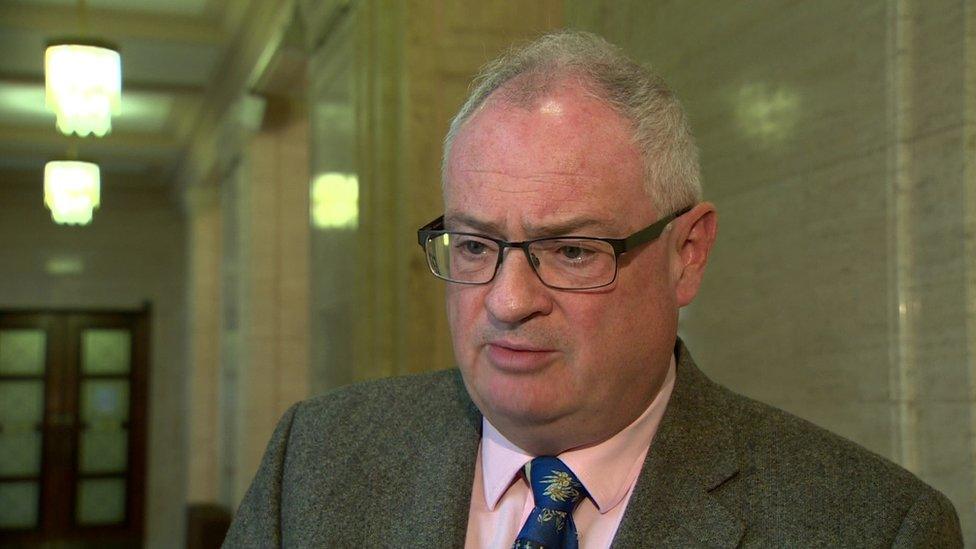
Steve Aiken has been an assembly member at Stormont since May 2016, when he was elected to represent South Antrim
After leaving the Royal Navy, the 57-year-old took up a post as chief executive of the British-Irish Chamber of Commerce, moving to Dublin with his second wife and their two children.
He also held the position of chief executive at the Dublin City University Educational Trust for a time.
In an interview with the News Letter, external in 2015, after he was announced as a candidate for the upcoming assembly elections, he admitted to only developing an interest in politics later in life.
He said it was conversations with then-UUP leader Mike Nesbitt that inspired him to run for elected office.
In May 2016, he was elected to represent South Antrim for the UUP in the Northern Ireland Assembly - but the political newcomer only spent a matter of months in the debating chamber before devolution collapsed.
One-horse race
Mr Aiken later became the party's chief whip and Brexit spokesperson, positions he held until taking over as party leader.
The MLA is on the more liberal wing of the party, having backed same-sex marriage and saying he is a "strong supporter of women's rights" when it comes to the issue of abortion law.
His decision to put himself forward for the position of UUP leader did not come as a surprise to many.
He is one of the party's few high-profile members left, after it suffered electoral setbacks in the snap assembly and general elections in 2017.
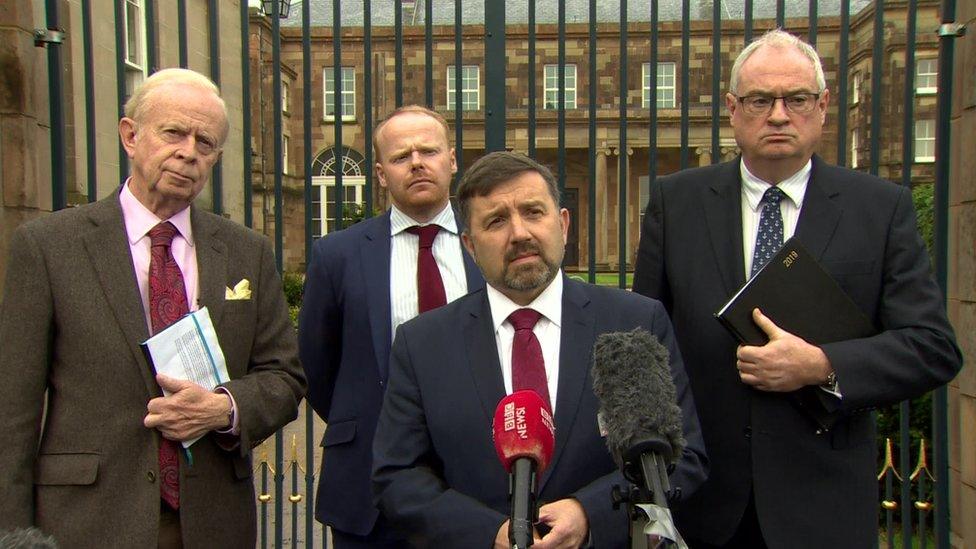
Steve Aiken (right) pictured with other senior UUP figures at a press conference following a meeting with the NI secretary
But his path to becoming party leader did not involve a contest - he will take over after being the only candidate in the running.
It was the second one-horse leadership race, after Robin Swann took charge in 2017 without any competition.
Mr Aiken was backed by Doug Beattie, a fellow MLA who chose not to contest the leadership saying a race in the current political climate would be "destabilising".
He may not have faced a challenge to win the leadership, but he now has to try to do what Robin Swann and Mike Nesbitt could not: stem the decline of their party.
The UUP faced another electoral blow in May, losing its only MEP position after candidate Danny Kennedy was unable to retain the position Jim Nicholson had held since 1989.
In recent years, the party has struggled to differentiate its brand of unionism from that of the Democratic Unionist Party (DUP), and its members will be keen to see what Mr Aiken's strategy is.
But with Brexit, the Stormont deadlock and defining the future of his party just some of the massive issues in his in-tray, the ex-submariner will have to recall his naval discipline if he's to stand any chance of torpedoing the DUP.
- Published14 October 2019
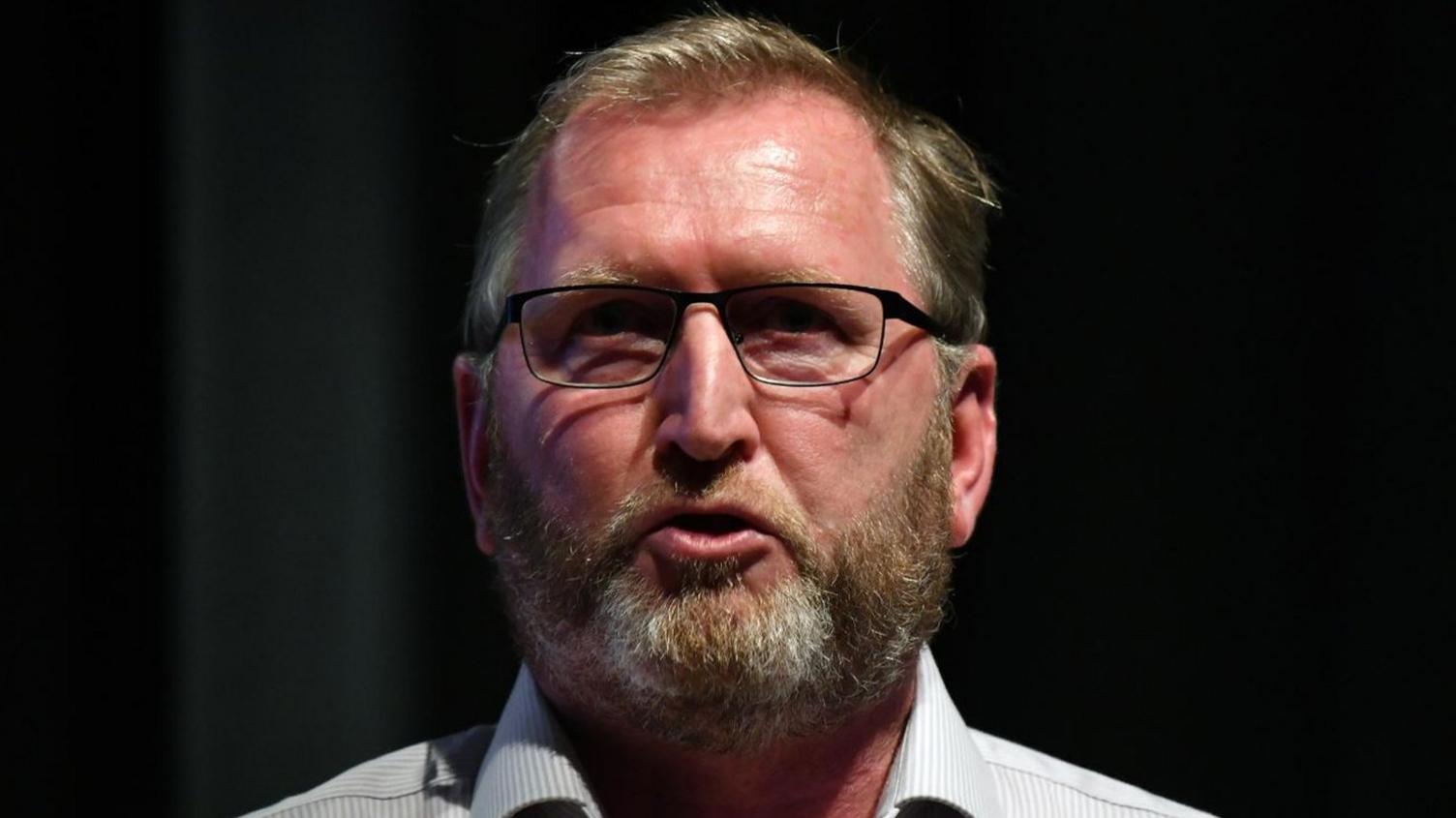
- Published10 May 2016
